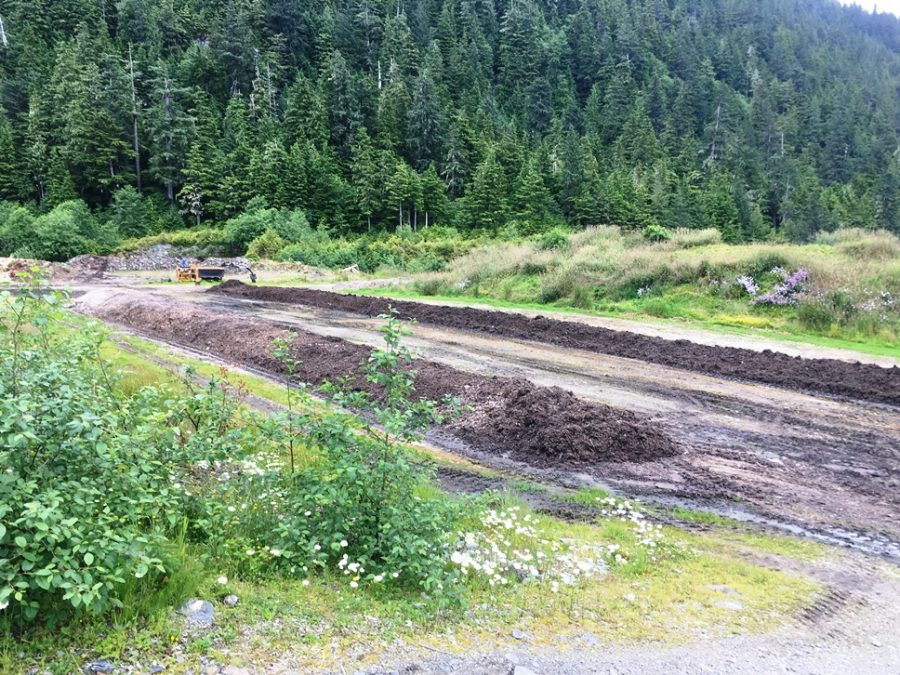
Yard waste brought to Ketchikan’s landfill is combined with sludge from the city’s wastewater system for composting. (KRBD photo by Leila Kheiry)
Ketchikan’s city-run landfill does a lot more than take garbage and send it south. For an $18 a month fee, residents throughout the Ketchikan Gateway Borough can drop off large appliances, recycle a variety of items, safely dispose hazardous material and take yard waste for composting.
“I get these odd calls about twice, maybe three times a year. Someone said, ‘Hey, you’re trashing the recycling.’ Drives me crazy,” said Lenny Neely, Ketchikan’s solid waste supervisor.
He’s serious about recycling. All the landfill employees are, he said, and they work hard to make sure what’s brought up for recycling is actually recycled.
So don’t let Neely hear the oft-repeated and inaccurate rumor that stuff put in recycling bins ends up with all the other garbage. Last year alone, they accepted more than 550 tons for recycling. The paper was shipped south, but the price for metal was really low at that point.
“I’m like, ‘Look. I’ve got a little room here I can store it. If I can hold this until the price comes up, we won’t get beat up as much on this.’ So what I did was I stored metal,” he said.
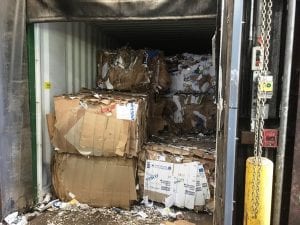
A container at the Ketchikan landfill is partially filled with cardboard and mixed paper for recycling. (KRBD photo by Leila Kheiry)
And the price did go up by about $10 a ton. It still costs the city to send metal south for recycling; it just costs less than it would have. That’s one way Neely tries to provide the service without rate hikes.
So what recycling do they accept?
“We take aluminum, cardboard, mixed paper; we do motor oil; we do fluorescent bulbs — compact fluorescent bulbs as well. We’ve got a machine that takes the chemical out of that,” he said. “And glass.”
Glass isn’t really recycled, at least, not in the traditional way. Instead of sending it somewhere to be turned into new glass products, Ketchikan’s landfill uses it locally.
“Glass is 75 percent silica – it’s sand,” he said. “And we’re using it as a cover material.”
Neely said Ketchikan has a recycling rate of about 25 percent. That includes businesses that recycle regularly, and about 1,000 residents who bring their recycling up to the landfill.
While they do go out and collect mixed paper from a few large commercial customers, Neely said having people who want to recycle bring it themselves is the most efficient and cost-effective way to offer the service.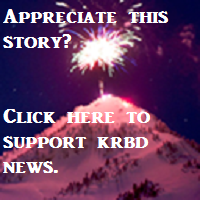
“The people that want to recycle have the ability to do that. Because the people that want to do it, they will go out of their way to do it. With that being said, you end up with the cleanest materials and you end up with volume that recycle companies want,” he said. “Because people are not forced to do it, but the ones that are doing it are great recyclers. And that’s what we have coming here.”
The landfill also takes clean concrete, grinds it up and uses it as for road material at the facility. And they compost yard waste people bring up to the dump with sludge from the city’s wastewater system.
“Ketchikan is – there’s a lot of muskeg. As a farm boy from the south, I mean – good dirt grows stuff, right? We don’t have really good dirt here,” he said. “We take the wood chips and use it as feedstock, to mix with the sludge and we do composting in that manner to create dirt for final cap, which is excellent.”
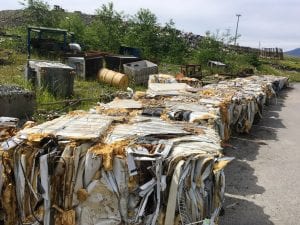
Appliances that have been brought to the Ketchikan landfill are compressed and bound. They’ll be sent south for recycling. (KRBD photo by Leila Kheiry)
By final cap, he means they use it at the landfill to cover the fill once it’s, you know, full.
The landfill also has a shredder for confidential paperwork, an incinerator for extra-confidential paper and for invasive weeds; and a hazmat area for chemicals and materials that shouldn’t be thrown out with the regular garbage – like batteries, antifreeze, pesticides and paint.
Overall, Neely said he and the landfill’s employees aim to offer one-stop disposal service for the community.
“The guys, they take great pride in what they do. Which is tough,” he said. “Garbage is a tough job: Stinky, smelly, all the above. But, it’s comforting – I look at the years I’ve been in, and I’ve made the world a cleaner place to live.”
Including one little corner of Southeast Alaska.
We aired an earlier story about another program at the landfill that allows residents to take items that others have thrown away. You can find that earlier story here.
For more on Southeast disposal issues and solutions, see the CoastAlaska Talking Trash series.
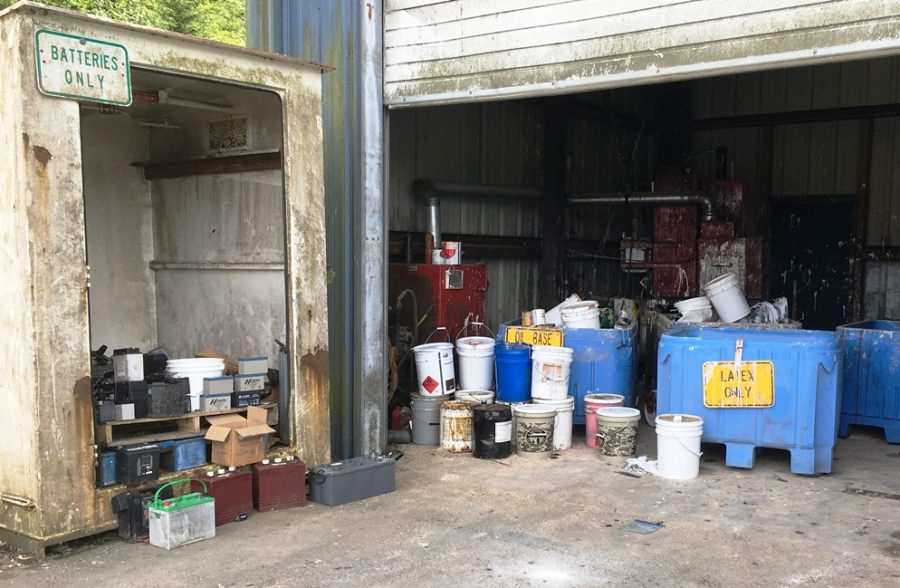
A area at Ketchikan’s landfill is designated for hazardous material, such as batteries and paint. (KRBD photo by Leila Kheiry)





